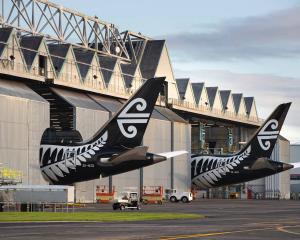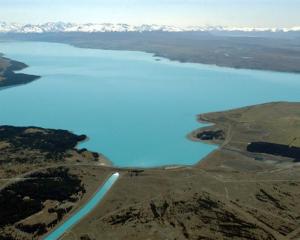
Among the other airlines involved are British Airways, Cathay Pacific Airways, Qantas Airways and United Airlines.
Today commission chairwoman Paula Rebstock said that the alleged collusion to impose additional charges would have caused extensive harm to the New Zealand economy.
The commission alleges that airlines throughout the world colluded to raise the price of freighting cargo by imposing fuel surcharges for more than nine years.
That affected the price of cargo both into and out of New Zealand, the commission said.
It was today initiating legal proceedings in the High Court at Auckland.
It is alleged that airlines first entered into an illegal global agreement in 1999/2000 under the auspices of the trade organisation International Air Transport Association (Iata). The airlines imposed the fuel surcharges between 2000 and 2006.
The allegations also involve a series of regional price fixing agreements. In addition, the commission alleges that a number of airlines conspired to price fix through imposition of a security surcharge immediately following the 9/11 terrorist attacks.
The commission said that although the case potentially involved 60 airlines and a great number of individuals throughout the world, it had focused on those airlines which had the greatest impact on New Zealand as well as the most culpable individuals.
All the individuals named in the proceedings were managers holding positions of responsibility and were allegedly actively involved in promoting the conspiracy and/or they were allegedly in a position to stop the conduct and deliberately refrained from doing so.
Some airlines were cooperating with the commission and an early resolution may be possible in some cases, the commission said.
Airlines earned more than an estimated $400 million each year transporting air cargo to and from New Zealand, and over the nine years the agreement was in place the total revenue was about $2.9 billion.
Ms Rebstock said the airlines were under similar scrutiny by other competition authorities around the world including the US Department of Justice, the Australian Competition and Consumer Commission and the European Commission.
"The commission will continue to work with its international counterparts in the drive to stamp out this conduct," she said.
New Zealand was a long way from its overseas markets and so the harm to this country's economy and its ability to compete internationally would have been disproportionately greater than in other jurisdictions in which the conduct took place.
Many New Zealand businesses and every consumer would have been directly affected by the increased air freight costs over many years. It would have resulted in increased costs for exporters and importers and higher overall prices for many consumer goods, Ms Rebstock said.
Participation in cartel activity was internationally regarded as one of the most egregious forms of anti-competitive behaviour.
"Cartels have grown on a worldwide basis and often operate at a global level," she said.
"Cartels are insidious. They are difficult to detect and extremely difficult to investigate because of their secretive and international nature." The other airlines the commission is filing proceedings against are Cargolux International Airlines, Emirates, PT Garuda Indonesia, Japan Airlines International Co, Korean Airlines Co, Malaysian Airline System Berhad, Singapore Airlines Cargo Pte and Singapore Airlines, and Thai Airways International Public Company.












